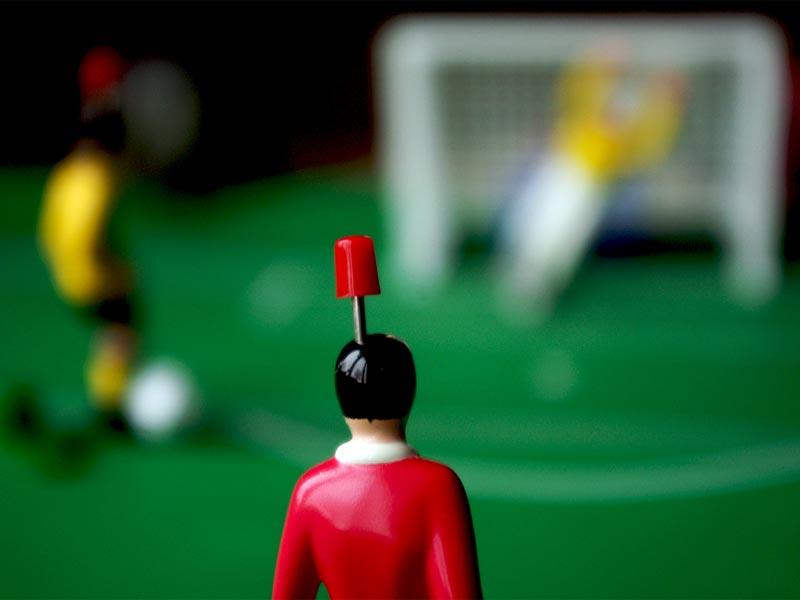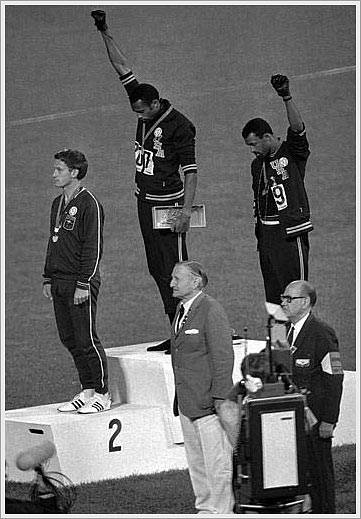
(Above photo by JR3, and used according to the terms of SXC.hu.)
The usually decent SoccerBlog.com has a slightly misguided post about how the language of soccer — here comes the obligatory “ahem, football to most of you” acknowledgment — is suffering from “insidious word creep” because there has been an upsurge in in-the-throes-of-Beckham Americans taking to talking about “assists” (in the sense of the person whose kick or touch sets up or directly leads to the resulting goal), a term, and indeed a concept, that has heretofore not been part of the game in any codified sense.
Never mind that SoccerBlog messes up on the proper etymology of the term “soccer” in his first paragraph (the short story being that it wasn’t Americans who coined the blasted term, but Brits themselves), but really, is the growing use of the word “assist” that insidious (defined by the Cambridge Dictionary of American English as “gradually and secretly causing harm”). Although I myself haven’t heard this term used, probably because I don’t watch any American soccer or have much of a chance to hear American broadcasters (local cable outfit JSports has started showing a few of the Beckham L.A. Galaxy games on delay, but I haven’t watched them), I have no problem with it nor can I imagine why anyone would, unless they were worried about American “creep” on the global game. (Curiously, I do hear the word “assist” being used by Japanese soccer sportscasters — アシスト(ashisuto) — in the exact context that we’re talking about here.)
I suppose the same people who prescriptively declare that a “math teacher” should be a “maths teacher,” or can’t get over how aubergine begot the eggplant in American usage (“Where the fuck is the egg?” as someone not so delicately once asked me) would be crying in their Imperial teacups should “pitch” become “field,” “fixture” become “game,” “touch line” the “out of bounds” line, and so on. And I probably would too. But it seems to me that if “assist” is actually trying to make a push for inclusion, and I think the jury is still out of that one (I certainly have not heard any Sky Sports broadcaster using the word), it isn’t trying to supplant anything, merely supplement and add to the discussion. But that isn’t what “word creep” implies.
Truth be told, the post’s author Shourin Roy has it more in for the “creep” of the “assist” statistic itself then the word, but on this score too I have to wonder what the fuss is about. Isn’t it meaningful — insofar as any stat is actually meaningful — to know that x player contributed more to his team by way of assists than actual scoring. Wouldn’t some people find that stat useful — again, if we assume that stats in general are actually useful?
Watching Nakamura for Celtic last year, as great as his free kicks were, it seemed that he also contributed directly to the scoring of goals by other means, such as corner kicks, yet that these were usually quickly forgotten as soon as the first slow-motion replay of the goal was shown. I’m sure I wouldn’t even be able to look up how many “assists” he had to make a comparison between these and the goals he ended up scoring. Oops, not so fast. It seems that, according to Nakamura’s Wikipedia entry, someone has been keeping track and according to that entry (no source given, sadly), Nakamura had 12 assists in Scottish Premier League play last season, as opposed to 9 goals. Naturally one would expect his free kicks against Man U (two of them! — here and here) and his Championship-winning one against Kilmarnock to remain in Celtic fans’ hearts for a long time, but could not a case be argued that his 12 “assists” contributed just as much. (And speaking of argued cases, could we not argue that in that season-winning Kilmarnock game, it was Nakamura who assisted himself in that it was he who drew the foul that led to the free kick?)
To be fair, Roy does ask this question when he writes that “it does make a difference as to who set up the goal and why their contributions shouldn’t be recognized more fully.” But that’s all he seems willing to concede, and ultimately he thinks “assist” is no more than jargon and something that keeps journalists lazy (easier to write “an assist from Beckham” than “Beckham guided a lovely pass to Donovan”). I doubt the impetus for this new stat is coming from lazy journalists, though.
The charge that Americans over-emphasize the statistic (especially individual ones) is probably fair, especially when it comes to America’s pastime sport of baseball in this day and age of “Moneyball” and “Sabermetrics.” There are all sorts of arcane measurements which make an old fogey like me who is content with RBI’s, batting average, ERA, etc. scratch his head. In addition to General Managers though, I’d say a lot of these new stats are driven by rotisserie baseball.
Baseball does use the “assist” statistic, but in a relatively minor way as a defensive stat. The main usage of assist comes I think from basketball, where it has been recorded as a statistic in the NBA since at least 1946 (interestingly enough, it predates the rebound stat by a few years, something I usually would pay more attention to).
Perhaps we should ask two-time NBA Most Valuable Player Steve Nash of the Phoenix Suns, who averages 7.6 assists per game and is ranked (currently) 28th all-time for career assists, for his opinion on the assist statistic for soccer. Not only does Nash know his assists from his shots, he may well be a soccer player trapped in an NBA uniform. At any rate, it would seem insane to strip basketball statistics down to goals and free throws made, though it is ultimately only those that matter in terms of winning or losing.
If Major League Soccer ever got to the point where it could support rotisserie leagues, with fantasy owners punching up Excel spreadsheets detailing assist stats on their laptops on “draft day,” then I’d say Beckham did his job and the popularization of the sport in America was complete. Sadly I don’t see that happening for a long time, if ever. However, if assists are recorded as diligently as “Posh and Becks” every move in America has been so far, then I hardly think that is a bad thing for the sport, in America, or globally.
You’ll rarely ever catch me arguing for more American influence in matters global, but at the same time, just because the culture does tend to act like the biggest kid in even the tiniest of sandboxes shouldn’t preclude it from participating and perhaps even, ahem, assisting the global game a little bit. I can see why some would view that as creep or just plain creepy, but I would probably give them a yellow card for overreacting.
Now, how about for some real influence. Let’s see, the game needs to institute a system of keeping time that isn’t from the 19th century, and instant replay wouldn’t be a bad idea, and yellow cards for writhing in pain from a love tap….



